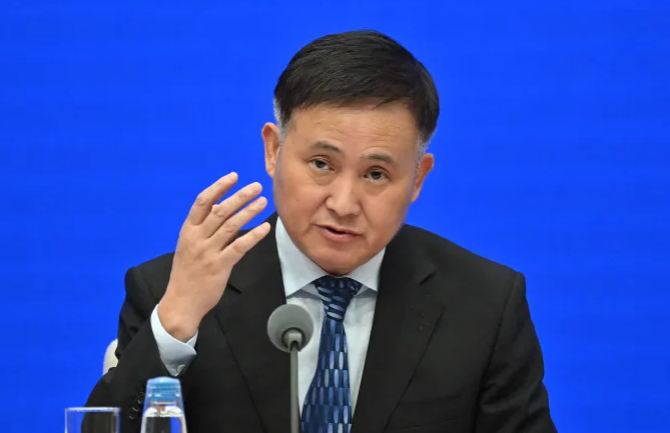Beijing: China has announced a slew of stimulus measures to boost the economy amid signs that Beijing’s growth target for this year is slipping out of reach.
China’s central bank said on Tuesday that it would take steps to lower borrowing costs, inject more liquidity into the economy, and ease mortgage repayments for households. Governor of the People’s Bank of China, Pan Gongsheng, told a news conference that the central bank would soon cut the amount of cash banks must hold as reserves – called the reserve requirement ratio (RRR) – by 0.5 percentage points.
Pan said the move would inject about 1 trillion yuan ($141.7bn) in “long-term liquidity” into the market.
He said the rate could be further lowered by 0.25-0.5 percentage points later this year depending on liquidity conditions. The central bank governor said the seven-day reverse repurchase rate, one of a variety of rates Beijing uses to manage monetary policy, would be lowered by 0.2 percentage points. Pan also announced plans to increase support for the ailing property sector, including lowering interest rates for existing mortgages.
Chinese stocks had their strongest rally since February 2022 following Pan’s announcement.
“This is a step in the right direction,” Julian Evans-Pritchard, head of China economics at Capital Economics, wrote in a note. “But it will probably be insufficient to drive a turnaround in growth unless followed up with greater fiscal support.”
Beijing’s growth target of about 5 percent for 2024 has been under a cloud amid a prolonged real estate slump, deflationary pressure, high youth unemployment and ballooning debt levels among local authorities. In June, Beijing became the latest city government to announce measures to prop up the property market, including cuts to mortgage interest rates and a reduction in the minimum down payment ratio.
China’s economy last year officially grew 5.2 percent, its worst performance in decades, excluding the COVID-19 pandemic.

















